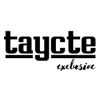Editor’s note: This story is the first installment in a three-part monthly series looking at trends that will shape the food and beverage space in 2018. Previous articles sponsored by BMO Harris Bank can be found here.
Today's consumers want to change the world — and they want their food and drinks to do the same.
Eric Pierce, director of business insights at New Hope Network, said at the Natural Products Expo East conference in September there is a growing awareness among socially minded consumers that they can make a difference by changing the status quo. Last year, New Hope Network found out of all of the trends gaining popularity in the food world, products with a mission and story were the most likely to gain traction with the mainstream consumer.
"This makes me feel good about humanity," Pierce said at a 2016 presentation. "…These products work to stand out in the marketplace by standing for something."
Consultant Gwendolyn Wright told SmartBrief company missions are important because they show consumers value social responsibility and their community. In turn, this creates stronger product loyalty as well as a fan base of shoppers who want something that tastes good and improves the world around them.
"This makes me feel good about humanity. …These products work to stand out in the marketplace by standing for something."

Eric Pierce, director of business insights at New Hope Network
Director of business insights at New Hope Network
Data backs up this trend as well. A report from The Hartman Group found about 70% of consumers want retailers to be more transparent about their willingness to address issues including the environment, labor and animal welfare that can appear during product development. A separate study from Response Media found nearly all respondents would be willing to pay more for transparent products — providing retailers with a financial incentive to be more open about the items they sell.
Several food companies were founded with both altruism and product quality at their base, and marketers have urged companies to find a story and a higher purpose to help them succeed and stand out in today's market. As 2018 draws closer, companies that exhibit these missions — such as Sunshine Nut Company and Divine Chocolate — will continue to see success, both with consumers and in using their products to make lives better.
A touch of sunshine
When Don Larson founded the Sunshine Nut Company in 2011, he was making a deliberate career shift: Moving from success to significance.
Larson, who had previously held high-ranking positions at large CPG companies, including as Hershey’s director of cocoa operations, had seen traditional business prosperity.
“The higher I went in the companies I worked for, the more disillusioned I became,” Larson told Food Dive in an email. “I abruptly changed my direction in life and started with the idea that I wanted to help those who didn't have hope or opportunity.”

Larson focused on Mozambique, one of the poorest countries in the world. He moved his family there from the U.S six years ago to start Sunshine Nut Company. Currently, the company sells cashews at more than 3,000 retailers in the U.S., and is developing a following in other countries as well.
In order to do the most good, Larson has developed what he calls “the Sunshine Approach” to doing business. The Sunshine Nut Company’s factory is located in Mozambique, and Larson said he is the only non-native who works there. Most of his employees are adults who were orphaned as children. He teaches them about business. But he also helps younger orphans as well; 30% of company's profits go to children’s centers to support these young people.
The cashews come from local farmers, and Sunshine Nut Company pays them a fair wage for their crops. In addition to supporting local farmers through business, Larson puts an additional 30% of the company's profits into supporting agricultural development.
Sunshine Nut Company now uses its own factory as a living classroom. It partners with local universities to teach food processing and international food quality requirements. Another 30% of company proceeds go toward providing funding to new local food processing companies, helping further grow Mozambique’s economy.
Larson said developing the mission and the way the company goes about it took some time. Six years of living in Mozambique and learning from the people there helped him to learn how to not just provide assistance, but change lives.
“We have been able to get better at what is truly transformational as opposed to being hindrances to that transformation,” he said. “Our focus has evolved to making sure our actions focus on earned versus entitled, hand-ups instead of hand-outs, hope versus despair, independence versus dependence, opportunity versus adversity, dignity versus worthlessness, and excellence versus failure.”
“Jobs give hope, opportunity, transformation, dignity. This action spreads love, promotes peace, and fosters community. But it needs to be done with excellence and sustainability.”

Don Larson
Founder, Sunshine Nut Company
Running a company like this presents many challenges, Larson said. Because he owns 100% of the company and gives away so many of the proceeds, finding financial assistance has been difficult. He said many entities have wanted to share in the company’s ownership — but they don’t have the same viewpoint on the importance of changing lives.
Mozambique also is not an easy place for foreigners to live or run businesses. The country often is ranked among the worst places for expatriates and competitive business. However, Larson has continually worked through those difficulties.
Sunshine Nut Company is a certified B Corp, meaning that it meets international standards for social and environmental performance, accountability, and transparency. It’s one of the few in Sub-Saharan Africa, and among the top-ranked B Corps in the world. Larson himself has received two United Nations awards, and has spoken at several international forums about the work Sunshine Nut Company does, including the Nobel Peace Prize Forum and TED talks.
“It is all about jobs,” he said in the email. “Jobs give hope, opportunity, transformation, dignity. This action spreads love, promotes peace, and fosters community. But it needs to be done with excellence and sustainability.”
Despite the strong social and economic mission of Sunshine Nut Company, Larson said the core of the business is the quality product it produces. In fact, when he appeared once on QVC to sell his nuts, he said he didn’t talk about the company’s charitable work.
“I was told that their audience would evaluate the claims I make on freshness and premium and either praise me or skewer me,” he said. “It turns out that what I told them is true — evidenced by the amazing reviews we have received to date.”
Sunshine Nut Company’s cashews are remarkably fresh — which is mostly because the processing, roasting and seasoning all happens close to the place where they are harvested, Larson said. He plans for more expansion, different product sizes and distribution channels, and new products for 2018.
“As we expand into other food categories, we will always offer an amazing taste, quality, and freshness experience,” he said. “The good we do during the process is just icing on the cake.”
Divine assistance
Divine Chocolate also stands out because of its mission-based focus.
The chocolate maker, which is 44% owned by the 85,000 Ghanaian farmers who supply its cocoa, started in 1998 as the first fair trade chocolate bar aimed at the mass market, giving it a unique profile that helps draw consumers and distances itself from its competitors.
“There's been a real appetite to support people in developing countries by helping them do business. I think that really has a resonance in an American context where this isn't aid — this is actually if you can give people channels to market and you can pay them properly, then they can sort themselves out,” Sophi Tranchell, Divine Chocolate's CEO, told Food Dive. “That I do think is fundamental to the American dream, isn't it really?”

Even as consumers gravitate toward fresher foods and healthier products, chocolate remains in a strong position because people haven't given up the desire to indulge.
Data from Statista shows U.S. chocolate consumption continues to steadily rise, with sales expected to reach $22.4 billion in 2017, an increase of $2.3 billion from just four years ago. Much of that is controlled by Hershey and Mars, which account for about 44% and 29% of the market, respectively. But the candy giants have focused largely on popular indulgences found in convenience stores and the supermarket checkout, leaving premium chocolatiers such as Divine to fill a void in the market.
From the start, there were skeptics about Divine, which has more than 70 products, including mint dark chocolate and milk chocolate with toffee and sea salt. Some said the company's partnership with local farmers could not combine profitability with a set of values including community and inclusiveness.
It didn’t take long for Divine Chocolate to find that its mission resonated with consumers, employees and its own cooperative members who had a uniform cause to work toward.
“The farmers owning us makes us quite distinct. If we were just a normal chocolate company that wasn't owned by cocoa farmers, how would we have had any of that access?”

Sophi Tranchell
CEO, Divine Chocolate
The company’s U.S. sales rose in 2016 to $10 million — more than twice the amount five years ago — as its products became available from retailers including Whole Foods, Walgreens, Safeway and Publix. Sales are currently growing by about 20% a year. Divine Chocolate, which gives 2% of its distributed profit to help train and mentor individuals running farms and other businesses, was recently honored as a “Best for the World” B Corp for its work with the cocoa farming community in Ghana.
Tranchell said Divine has succeeded in part because it is both a proprietor of premium, all-natural chocolates — giving it access to coveted retailers such as Target — and a business that is nearly half owned by the cocoa farmers who supply its product. She highlighted a recent gathering at Whole Foods' headquarters in Austin, Texas, as well as events with policy offices in Washington, D.C., including the Department of Labor and non-governmental organizations, as evidence of the opportunities its business model has created.
“In a very crowded marketplace, and if you take chocolate generally, rather than just premium chocolate, with people with very deep pockets to spend money, then the farmers owning us makes us quite distinct,” Tranchell said. “If we were just a normal chocolate company that wasn't owned by cocoa farmers, how would we have had any of that access? It would have been less likely, wouldn't it really?”
In addition to its ability to resonate with customers, its mission has resulted in other benefits for Divine. It helped it attract and retain employees who could have been drawn to a larger chocolate maker where a secure job was almost guaranteed.
The company also does not have to answer to shareholders, and those who own the company are in it for the long term, driven by a desire for sustainable cocoa farming and chocolate. It also can invest in issues important to the cooperative. Company representatives said a major initiative in 2018 will be supporting gender equality, focusing specifically on female cocoa farmers and ensuring they benefit equally in the communities and supply chain.
Troy Pearley, executive vice president and general manager, told Food Dive that Divine Chocolate speaks to what consumers are looking for today: an all-natural product that is fairly traded with no artificial ingredients, and that is non-GMO.
"The socially conscious people and the environment we are now in the U.S., with just people wanting to have a voice and being more conscious of the things around them and the things that they participate in buying and selling, so to speak — I think that's just an added benefit of who we are. And I think that will have a halo effect on success with us ... down the road," he said.

The makings of a soulful breakfast
When Megan Shea approached Campbell Soup Co. with the plans for The SoulFull Project last year, her goal wasn’t to launch a cereal brand, but to fulfill a promise.
Then a marketing manager for Campbell, Shea had recently met with a needy family that told her how challenging it was to eat healthy food and encourage their children to make nutritious choices when they had so little money.
“Beyond giving them extra food and extra money, we made a promise to do something more meaningful to help them, but we came back from that visit and came back to our jobs and families and life just got in the way,” she told Food Dive earlier this year at Natural Products Expo East. “That’s where this idea really came together.”
Shea — now the head of business and operations for the SoulFull Project — and other co-founders spent 10 months working with local food banks in Camden, New Jersey — where Campbell Soup is based — to develop heat-and-eat oatmeal products that could deliver the nutrition and convenience customers were missing. Shea said the company entered the morning foods space because many food bank operators struggled to provide good breakfast options for their communities.
"We want to help shoppers make an impact with everyday purchases. Our vision for The SoulFull Project is giving consumers the chance to make a good choice, feel good about what they’re buying for themselves and know that it helps a neighbor in need.”

Megan Shea
Head of business and operations, the SoulFull Project
“The breakfast space is still very challenging across multiple categories, but the thing about breakfast is it really does set the tone for your whole day and the choices you make,” Shea said. “Consumers that shop at more premium grocery stores and people that use food banks all struggle with this, and that’s really one of the key [principles] of The SoulFull Project — we all deserve to have great food, and have it in a way that fits in our busy lifestyles.”
The SoulFull Project team built its business model around this conviction. For every serving of hot cereal that a consumer buys, the company donates one serving of its 4 Grain cereal product — a blend of whole oats and quinoa in a multi-serve pouch — to a food bank in that shopper’s community.
Now a wholly-owned subsidiary of Campbell, SoulFull gives its 4 Grain cereal to 200 food banks across the country.
“The food banks actually helped us [formulate] this product, and there’s no sugar added because for so many people sugar is such a pain point, and a lot of people that are low income struggle with diabetes,” Shea said. “Not having sugar allows for customization and it allows consumers to use it in recipes throughout the day to get whole grains beyond just breakfast.”
She said the company worked to make nutritious ingredients like quinoa, flaxseed, steel cut oats and chia seeds, which can feel aspirational to both time-strapped and low-income shoppers, an everyday reality. In addition to the 4 Grain product, SoulFull retails four microwavable cup SKUs of cinnamon spice, brown sugar pecan, blueberry almond and tart cherry flavored oatmeal.
SoulFull products can also be found at Wegmans locations in New York, New Jersey, Pennsylvania, Maryland and Virginia.
After being on the market for a little over a year, Shea said she’s happy with the company’s expansion so far, but still thinks there are more breakfast opportunities for SoulFull ahead.
We want to help shoppers make an impact with everyday purchases,” Shea said. “Our vision for The SoulFull Project is giving consumers the chance to make a good choice, feel good about what they’re buying for themselves and know that it helps a neighbor in need.”
The "A Balancing Act" series is brought to you by BMO Harris Bank, a leader in commercial banking. To learn more about their Food & Beverage expertise, visit their website here. BMO Harris Bank has no influence over Food Dive's coverage.






















